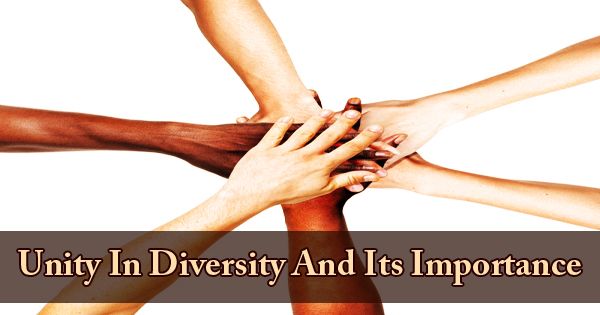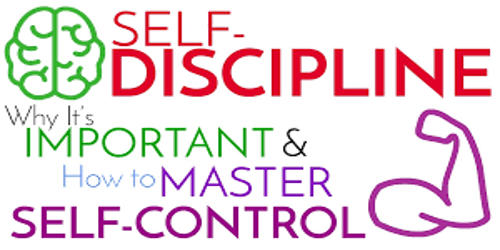Introduction: The term “Unity in Diversity” implies unity among people who are different. It is an ancient term which was first used in North America and China by some cultures, often around 500 B.C. It is a concept of “unity without uniformity and diversity without fragmentation” that shifts the emphasis from unity based on a mere tolerance of physical, cultural, linguistic, social, religious, political-ideological, and/or psychological differences to a more nuanced unity based on an awareness that human experiences are enriched by distinction. The most obvious example that gives the term credence is that of a democratic country.
There are distinct religions, cultures, ideologies, sects, languages, and other demarcations in a democratic country, but they all live in peace and harmony, following a uniform law. In addition, this principle has been present since time immemorial. Almost everywhere on Earth people have continually shown this praiseworthy behavior. The theory has definitely culminated in humanity’s ethical and moral evolution.
Unity in diversity in the modern world: Countries worldwide have never been monolithic institutions and have embraced migration, which has played a very important role in their development. As a country, Bangladesh is the best example of “Unity in Diversity” with individuals of different faiths and cultures living together according to the parameters laid down by the Bangladesh Constitution in accordance with the rule of the land. For example, no matter how different they are in terms of faith and race, the lone super force of the universe attracts talents from around the world. Some people believe that a heterogeneous society faces a lot of development obstacles, but they are more democratic, and after forming a large consensus, all measures are taken.
Unity in diversity has offered to ascend to the incredible public coordination trademark to the nation which has become the establishment of solid and prosperous India even after heaps of defilement, radicalism, and psychological oppression. Individuals living in different states are by and large varying in their communication in language, culture, customs, garments, celebrations, look, and so on.
Unity in Diversity in Politics: It was first used in modern politics by Ernesto Teodoro Moneta, as in varietate unitas, in the sense of Italian Unification. The Solidarity of Diversity phrase has become a symbol of multiculturalism in Canada. This term was first used in Canada by Adélard Godbout, the Premier of Quebec. Canada is undoubtedly a great example of Harmony in Diversity. The term was invoked in the 1970s at Wilfrid Laurier University’s Interdisciplinary Research Seminar (IRS).
As an official motto, the European Union adopted Unity in Diversity in 2000. This was, above all, a reference to many diverse European Union nations. This diversity in the member states of the European Union is due to cultural differences. In addition, the introduction of Unity in Diversity as a motto reflects unity. It indicates that Europeans have come together regardless of differences.
Importance of Unity in Diversity:
- Unity in diversity increases people’s morale in the workplace, company, and society.
- It helps to improve the esprit de corps, relationships, and cooperation between individuals, thereby improving efficiency, work quality, productivity, and lifestyle.
- It makes communication effective even in a bad situation.
- It takes individuals away from social issues and helps to effectively resolve disputes.
- Improves healthy human relations and protects equal human rights for all.
- Unity in diversity provides the root of tourism in India. More visitors and tourists from all over the world draw people from diverse cultures, customs, cuisines, beliefs, and clothes.
- Even after being different in various ways, it gives rise to the habit of national integration among the citizens of the country.
- It gives importance to the country’s rich heritage and enhances and enriches our country’s cultural heritage.
- Via various crops and hence economic growth, it helps to be rich in agricultural areas.
- Source of skilled and advanced professionals in various areas to the country.
In addition to operating within a country, private companies have become multinational corporations. With offices in many nations, the workforce is diverse, and they cooperate with each other to achieve shared goals.
Advantages of Unity in Diversity: First of all it means an association with several types of people to follow Harmony in Diversity. There are likely to be some variations between these people.
- Working with different individuals gives greater exposure and makes you a happier person. It also helps people to value others’ opinions.
- Unity in diversity is accountable within a defined time period for improving the efficiency of the teamwork and completion of the projects.
- Because of various social and social conventions, the organizations are presently utilizing the standard think worldwide and act neighborhood. It is indeed a triumph of the variety rule as the associations are getting accustomed in working together in various pieces of the world.
- As people from various cultural backgrounds seem to know and value each other, solidarity is instrumental in solving social problems.
For a diverse world, Unity in Diversity is very useful. Above all, the idea helps people of diverse religions, races, castes, to live peacefully together. Certainly, the belief that Harmony in Diversity decreases the chances of protests and disruptions.
Disadvantages of Unity in Diversity: Despite the fact that variety prompts a more energetic and lenient society, it might likewise offer ascent to social pressures especially as the heterogeneous gatherings are unbending and decline to oblige. The decision tip-top can misuse the contrast among the dominant part and the minority to control power. Corruption and other forms of social issues can also be induced. If the country is weak, diversity can also lead to a slowdown in growth. In rural areas, the Elephantine decision could lead to poverty. Entry to basic services such as clean water and electricity may be missing for people.
Conclusion: Unity in diversity teaches us that while we are from different castes, religions, or races, we cannot be divided by these differences and we are all united to develop our country. It is an important part of ethics and morality; for the future development of human civilization, the principle is definitely critical. In this notion, people must show trust. While ethnic and religious differences can prove to be detrimental in the short term, they tend to make society more tolerant. As a result, individuals, regardless of class and religion, ultimately work together to build the country. From a long-term perspective, it is positive and will allow society to flourish not only economically, but also socially.
















